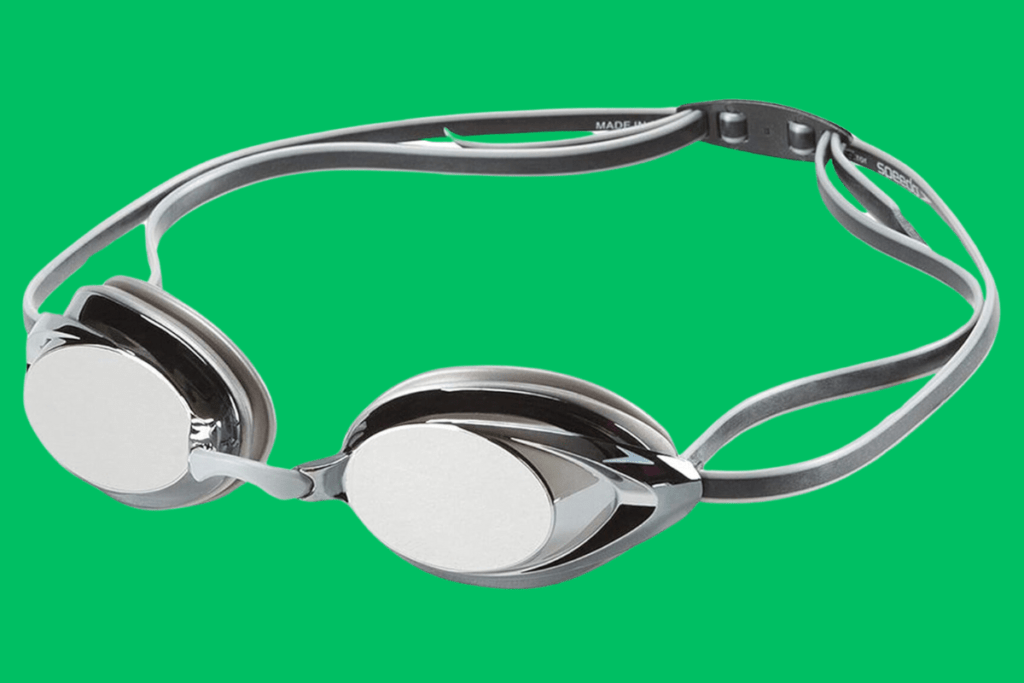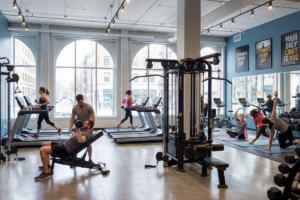There are so many best exercises for mental health that increase focus and reduce stress. The following effective techniques of this content, ranging from mindfulness practices to physical activities, are designed to support a balanced mind and improve emotional balance. It would be perfect for people looking for mental clarity and a happier, healthier life.
What is the Best Exercises for Mental Health ?
The mental health of a person affects their overall health. Our mental, psychological, and social well-being are all affected by what we think, feel, and do. Let us go through the description of the best exercises for mental health:
Impact:
- Thinking: How we think about things, decide what to do, and solve problems is affected by our mental health.
- Feeling: It affects our emotions, moods, and outlook on life.
- Acting: Mental health shapes how we interact with others, manage stress, and make healthy choices.
Importance of best exercise for mental health
Good mental health allows us to:
- Cope with life’s challenges
- Maintain healthy relationships
- Be productive at work or school
- Enjoy life activities
- Make positive contributions to our communities.
Mental Health vs. Mental Illness:
Making the distinction between mental disease and mental health is very important. Everyone’s mental health varies, and there are ups and downs for everyone. Conversely, mental illness is a diagnosable ailment that substantially disrupts an individual’s day-to-day functioning.
Maintaining Good Mental Health:
Just like physical health, mental health requires ongoing care. Here are some ways to promote good mental health:
- Regular exercise: Physical activity releases endorphins, which have mood-boosting effects.
- Healthy diet: Eating nutritious foods provides the body with the nutrients to function properly. Such as the brain.
- Quality sleep: Getting enough sleep is essential for mental clarity and emotional well-being.
- Strong social connections: Having supportive relationships can help buffer stress. They can provide a sense of belonging.
- Stress management techniques: Techniques like meditation, deep breathing, and yoga can help healthily manage stress.
- Seeking professional help: If you’re struggling with your mental health, get help from a professional therapist or counselor and select the best exercises for mental health development.
Taking care of your mental health is just as important as taking care of your physical health. By making mental health a priority, you can live a happier, healthier, and more fulfilling life.
Here are 20 Best Exercises for Mental Health that can improve your mental health:
1. Walking: Walking is one of the easiest and most convenient ways to exercise. This is a low-impact exercise that you can do almost anywhere. Studies said a little walk can help reduce feelings of stress, anxiety, and sadness. Walking is an excellent way to improve your mental health. If you can, try taking a walk outside to lift your spirits even further. Walking offers several benefits for your mental health, despite being very simple.
The Multiple Benefits of Walking
Mental benefits
- Improves mood: Walking can help reduce stress, anxiety, and depression. It can also improve your mood and sense of well-being Depression
- Improves sleep: Walking can help you to fall asleep faster and sleep more soundly.
- Boosts creativity: Walking can help to boost your creativity and problem-solving skills.
- Improves cognitive function: Walking can help to improve your cognitive function. Such as memory and focus.
Walking is one of the best exercises for mental health. It’s easy to start, and it can be done just about anywhere. So why not lace up your shoes and take a walk today?
2. Running: You can boost your mood, which are two excellent benefits of running. Walking is not as strenuous as this type of exercise, yet it can still yield great benefits. Endorphins are released during running and are known to improve mood. It can also aid in mental clarity and enhanced concentration. Running has many established physical benefits, but it also has a surprising number of mental health benefits. These are a few of the main advantages running has for the mind:
- Stress Reduction: Running triggers the release of endorphins and endocannabinoids in your body. These chemicals act as natural mood elevators and stress relievers. They make you feel calmer and more relaxed after a run.
- Improved Mood: Regular runs can combat feelings of anxiety and depression. It’s not a cure-all, but running can be a powerful tool to manage symptoms and elevate your mood.
- Sharper Mind: Running isn’t just good for your body; it can also boost your brainpower. Studies suggest that running can improve memory, focus, and even creativity.
- Better Sleep: Exercise in general can improve sleep quality. And running is no exception. A good run can help you fall asleep faster and sleep soundly. It will make you feel more energized throughout the day.
- Confidence Boost: A challenging run can give you a real sense of accomplishment. This can give you a positive self-image and increased confidence. It spills over into other areas of your life.
- Mindfulness and Clarity: Running can give you enough space to clear your head and process your thoughts. Whether you listen to music or run in silence, the rhythmic nature of running can be meditative, promoting mindfulness and mental clarity.
These are just some of the ways running can positively impact your mental well-being. It’s a great way to manage stress, improve mood, and boost your cognitive function.
3. Strength training: The benefits of strength training for both physical and emotional well-being are many. It can aid in lowering anxiety, tension, and depressive symptoms. Additionally, it can enhance your mood, quality of sleep, and cognitive abilities. Moreover, strength training can enhance your perception of your body and your sense of self. Muscle growth isn’t the only goal of strength exercise. A gym membership is not required for strength training. At home, you can work out with free weights or bodyweight exercises.
4. Yoga: Yoga incorporates meditation, breathing techniques, and physical postures. It’s a fantastic method to increase your strength, balance, and flexibility. You can use this for better concentration.

Additionally, yoga might lessen anxiety, tension, and depressive symptoms. Yoga is more than just stretches and physical postures. It combines breathing techniques and mindfulness. It is regarded as one of the best exercises for mental health. Here are a few of the main advantages of yoga for the mind:
- Stress Reduction: Yoga excels at stress reduction. The combination of physical postures (asanas), breathing techniques (pranayama), and meditation helps calm the nervous system and promotes relaxation. This can significantly reduce stress hormones like cortisol, leaving you feeling calmer and more centered.
- Improved Mood and Reduced Anxiety: Yoga’s focus on mindfulness and breathwork can effectively combat anxiety and symptoms of depression. Studies suggest that regular yoga practice can improve mood, reduce negative thoughts, and promote feelings of well-being.
- Enhanced Sleep Quality: Feeling stressed or anxious often disrupts sleep. Yoga, with its stress-reducing and relaxation techniques, can significantly improve sleep quality. You might fall asleep faster, experience deeper sleep, and wake up feeling more refreshed.
- Increased Self-Awareness and Focus: Yoga encourages focusing on the present moment and bodily sensations. This practice translates into improved self-awareness in daily life. Yoga can also enhance concentration and focus, making it easier to manage daily tasks and distractions.
- Boosted Confidence and Body Image: Yoga promotes body positivity by helping you appreciate your body’s strengths and capabilities. As you develop flexibility and strength through yoga practice, your confidence can improve both on and off the yoga mat.
These are just a few of the ways yoga can benefit your mental well-being. If you’re looking for a way to manage stress, improve your mood, or simply enhance your sense of calmness, yoga is a practice worth exploring.
5. Dancing: Dancing is a fun and social way to get some exercise. It can help to improve your mood, reduce stress, and boost your self-esteem. It can also boost your self-esteem and creativity. There are many different types of dance to choose from, so you can find one that you enjoy. There are even virtual dance classes available if you prefer to stay home. Dancing is a great way to express yourself and connect with others.
Dancing offers a delightful way to boost your mental well-being. Here are some key benefits:
- Mood Magic: Dancing is a fantastic mood elevator. It triggers the release of endorphins, those feel-good chemicals in your brain, leaving you feeling happy and positive.
- Stress Slayer: Moving your body to music is a great way to combat stress. Dance helps reduce stress hormones. It promotes relaxation, leaving you feeling calmer and more centered.
- Confidence Booster: Mastering new dance moves and routines can give you a real sense of accomplishment. This can significantly improve your self-esteem and confidence, which can spill over into other areas of your life.
- Social Butterfly: Many dance styles are social activities. Whether it’s a salsa class or a night out at a club, dancing provides opportunities to connect with others and combat feelings of loneliness.
- Sharper Mind: Dancing can be surprisingly good for your brain. Movements and remembering steps can enhance memory, attention, and even creativity.
- Mindfulness in Motion: Dancing can be a meditative experience. Focusing on the rhythm of the music and the movements of your body. It can promote mindfulness and a sense of being present in the moment.
Thus, dancing is one of the best exercises for mental health. It can elevate your mood, reduce stress, boost your confidence, and even sharpen your mind. So put on your dancing shoes and let loose!
6. Tai Chi: Tai Chi, an ancient Chinese practice known for its graceful movements, offers a wealth of benefits for the mind as well as the body. Tai Chi is a gentle form of exercise that combines physical movements, breathing exercises, and meditation. It’s a great way to improve your balance, flexibility, and strength. Tai Chi can also help to reduce stress, anxiety, and symptoms of depression.
This gentle form of martial arts involves slow, flowing movements and deep breathing, which can reduce stress, improve mood, and enhance mental health.
Here are some key ways Tai Chi can enhance your mental well-being:
- Stress Reduction: Tai Chi’s slow, controlled movements coupled with deep breathing promote relaxation and mindfulness. This combination effectively combats stress and anxiety, lowering stress hormones and leaving you feeling calmer.
- Improved Mood and Reduced Depression: Studies suggest that regular Tai Chi practice can significantly improve mood and reduce symptoms of depression. The focus on breathwork and gentle movement can elevate mood and promote feelings of well-being.
- Sharper Mind: Tai Chi isn’t just about physical postures; it also incorporates mental focus and coordination. This mind-body connection can improve cognitive function, including memory, concentration, and even executive function (planning and decision-making).
- Better Sleep: The stress-reducing and relaxing effects of Tai Chi can significantly improve sleep quality. You might fall asleep faster, experience deeper sleep, and wake up feeling more refreshed.
- Increased Self-Awareness and Focus: Tai Chi emphasizes being present in the moment and focusing on your breath and movements. This practice cultivates self-awareness that translates into daily life, enhancing your ability to focus and manage distractions.
- Boosted Confidence: As you master the flowing movements of Tai Chi, you’ll develop a sense of accomplishment and improved coordination. This can lead to increased self-confidence that spills over into other areas of your life.
Tai Chi is a powerful exercise good for mental health. It can effectively reduce stress and anxiety, elevate mood, improve cognitive function, and boost your sense of calmness and self-awareness.
7. Pilates: Pilates is a form of exercise that focuses on strengthening your core muscles, improving flexibility, and promoting body awareness, which can contribute to better mental well-being. It can help to improve your posture, flexibility, and balance.
8. Swimming: Swimming is not only a great cardiovascular workout but also a meditative activity that promotes relaxation and reduces symptoms of anxiety and depression. It is a low-impact exercise that’s easy on your joints. It’s a great way to get some exercise and cool down on a hot day. Swimming can also help to reduce stress, anxiety, and symptoms of depression.

9. Cycling: Cycling is a great way to get some exercise and enjoy the outdoors. It’s a low-impact activity that’s easy on your joints. Cycling can also help to reduce stress, anxiety, and symptoms of depression.

- Stress Slayer: Pedaling away releases a cocktail of endorphins and mood-elevating chemicals in the brain. This natural response combats stress and anxiety. It also makes a feeling calmer and more positive.
- Mood Booster: There’s a reason cyclists rave about the “cycling high.” Regular rides can significantly improve your mood and sense of well-being. It’s a great way to combat feelings of depression and negativity.
- Sharpened Mind: Hitting the road isn’t just good for your legs; it can also boost your brainpower. Studies suggest cycling can improve memory, focus, and even creative thinking.
- Sleep Sanctuary: Exercise, in general, is a sleep aid, and cycling is no exception. A good ride can help you fall asleep faster and sleep more soundly, leaving you feeling more energized and clear-headed.
- Confidence Builder: Completing a challenging cycle, conquering a hill, or simply reaching your mileage goal can instill a real sense of accomplishment. This can contribute to a positive self-image and increased confidence that spills over into other areas of life.
- Mindful Movement: Cycling, especially outdoors, can be a meditative experience. The rhythmic motion of pedaling and the focus required for navigation can promote mindfulness. And it gives a sense of being present in the moment, helping you clear your head.
- Social Butterfly: Cycling can be a social activity. Group rides or meeting friends for a cycle can combat feelings of loneliness. And it provides opportunities to connect with others who share your passion.
These are just some of the ways cycling can benefit your mental health. It’s a fun and accessible activity that can elevate your mood, reduce stress, sharpen your mind, and boost your well-being. So, why not hop on a bike and experience the mental and physical benefits of cycling for yourself?
10. Hiking: Hiking is a great way to get some exercise good for mental health. It’s a more challenging activity than walking, but it can be very rewarding. Hiking can also help to reduce stress, anxiety, and symptoms of depression.

Here are some key ways hiking can elevate your mental well-being:
- Stress Reduction and Improved Mood: Spending time in nature has a well-documented calming effect. Studies have shown that immersing yourself in greenery lowers stress hormones and promotes feelings of relaxation. This can significantly reduce anxiety and leave you feeling more upbeat.
- Mindfulness and Mental Clarity: Hiking allows you to unplug from the constant stimulation of daily life. Surrounded by nature, you can focus on the present moment, the rhythm of your breath and steps, and the sights and sounds of the environment. This promotes mindfulness and mental clarity. It allows you to return to daily activities feeling more focused and grounded.
- Improved Cognitive Function: According to research, spending time in nature can improve cognitive function. Such as memory, focus, and even creativity. Hiking can give a mental break from the constant barrage of information we face daily. It gives your brain a recharge and returns you to tasks with renewed focus.
- Boosted Confidence and Self-Esteem: Conquering a challenging hike or reaching a scenic viewpoint can bring a real sense of accomplishment. This can contribute to a positive self-image and increased confidence that spills over into other areas of your life.
- Reduced Symptoms of Depression: Several studies have shown that spending time in nature can alleviate symptoms of depression. The combination of exercise, stress reduction, and connection with nature can have a powerful mood-boosting effect.
- Social Connection or Solitude (Your Choice!): Hiking can be a social activity and a great way to bond with friends and family while enjoying the outdoors. Or, hiking can also be a solitary experience, a chance to connect with yourself and your thoughts in a peaceful setting.
Thus, hiking is a powerful tool for promoting mental well-being. It can effectively reduce stress and anxiety. Elevate mood, improve cognitive function, and boost the sense of calmness. So next time you’re feeling overwhelmed or need a mental break, lace up your boots and hit the trails!
11. Rock climbing:

Rock climbing is a great way to get some exercise and challenge yourself. It’s a physically demanding activity that requires strength, coordination, and problem-solving skills. Rock climbing can also help to reduce stress, anxiety, and symptoms of depression. This unique activity involves stacking rocks in precarious positions. It requires focus, patience, and a bit of creativity. It can also be a fun way to connect with nature.
12. Team Sports: Engaging in team sports like soccer, basketball, or volleyball not only provides physical activity but also fosters social connections, which are very important for mental health. Team sports are a great way to get some exercise and socialize with others. They can help to improve your mood, reduce stress, and boost your self-esteem. Team sports can also teach you valuable teamwork skills. You can buy a team sports jersey for better mental confidence.

13. Martial arts: Learning martial arts is an excellent way to stay fit and develop your self-defense skills. Your strength, balance, and coordination can all be enhanced by them. These pursuits offer a channel for letting go of suppressed feelings, lowering hostility, and fostering confidence and self-control.
14. Gardening: Getting outside and spending time in nature are two excellent benefits of gardening. You can complete this low-impact exercise at your speed. Additionally, gardening can aid in lowering anxiety, stress, and depressive symptoms.
15. Domestic tasks: You can get exercise even from performing domestic chores. It may encourage you to move and burn calories. Taking care of your home’s needs might also make you feel happier and less stressed.
16. Awareness Meditation: Meditation is a discipline that entails mind-quieting and attention-focusing. It can lessen tension and anxiety while enhancing concentration. You can choose a meditation method that suits you by choosing from a wide variety of techniques. Both attentional focus and mental quietness are necessary for meditation. There are several methods for doing it, including just sitting still and paying attention to your breathing. Additionally, it can enhance concentration and focus.
17. Laugh! You can find comedy in everyday events, watch a humorous movie, or just spend time with someone who makes you laugh. Laughing is a very effective way to decompress.
18. Volunteering: Researchers have found that volunteering or helping others can make you happier. It makes you less stressed and more satisfied with your life. All of them are the best exercises for mental health.
19. Get adequate sleep: For improved mental and emotional health, try to get 7-8 hours of good sleep every night.
20. Engage in Some Creative Work: Use writing, painting, music-making, or any other enjoyable creativeness to express yourself. This book will be the best guide for you.
General Talk, Always keep in mind that finding an activity you enjoy and can maintain matters most. A modest fitness regimen can have a significant impact on your mental well-being.
Want more mental fitness tips, workout ideas, and motivation straight to your inbox?
Subscribe to our newsletter and stay inspired on your journey to better mental and physical health.











53 Comments
amoxicillin for sale – comba moxi amoxil drug
purchase amoxicillin sale – https://combamoxi.com/ order generic amoxil
buy forcan generic – https://gpdifluca.com/# where to buy diflucan without a prescription
fluconazole 100mg sale – buy fluconazole pills order fluconazole 100mg without prescription
cenforce without prescription – https://cenforcers.com/# purchase cenforce online cheap
cenforce 100mg pills – https://cenforcers.com/ cenforce 100mg sale
cialis how long does it last – on this site what is the difference between cialis and tadalafil?
cialis free trial phone number – ciltad generic п»їwhat can i take to enhance cialis
cialis 20mg side effects – https://strongtadafl.com/ tadalafil 20mg (generic equivalent to cialis)
ambrisentan and tadalafil combination brands – strong tadafl generic cialis tadalafil 20mg india
zantac usa – https://aranitidine.com/# zantac online order
sildenafil citrate 100mg en es – https://strongvpls.com/ sildenafil oral jelly 100mg
buy viagra soho – viagra super force 100mg 60mg pills viagra cheap india
This website absolutely has all of the bumf and facts I needed adjacent to this case and didn’t comprehend who to ask. where can i buy prednisone
More posts like this would prosper the blogosphere more useful. site
More posts like this would force the blogosphere more useful. https://gnolvade.com/
Greetings! Very gainful par‘nesis within this article! It’s the petty changes which liking turn the largest changes. Thanks a portion in the direction of sharing! https://buyfastonl.com/azithromycin.html
More posts like this would make the online time more useful. https://ursxdol.com/get-metformin-pills/
More posts like this would add up to the online time more useful. https://ursxdol.com/doxycycline-antibiotic/
This is a keynote which is near to my verve… Myriad thanks! Exactly where can I find the connection details due to the fact that questions? https://prohnrg.com/product/get-allopurinol-pills/
This is the gentle of scribble literary works I in fact appreciate. prohnrg
This is a keynote which is forthcoming to my fundamentals… Numberless thanks! Exactly where can I lay one’s hands on the acquaintance details in the course of questions? ou trouver du viagra ou cialis
The thoroughness in this section is noteworthy. https://ondactone.com/product/domperidone/
I’ll certainly return to be familiar with more. https://ondactone.com/spironolactone/
The thoroughness in this break down is noteworthy.
https://doxycyclinege.com/pro/celecoxib/
Palatable blog you have here.. It’s intricate to assign strong status belles-lettres like yours these days. I honestly respect individuals like you! Withstand vigilance!!
buy generic ondansetron online
I am in point of fact enchant‚e ‘ to glitter at this blog posts which consists of tons of of use facts, thanks object of providing such data. https://48.caiwik.com/index/download2?diff=0&darken=1&utm_clickid=a04o4oksskokccsg&aurl=https://www.instapaper.com/p/adip
Proof blog you be undergoing here.. It’s intricate to espy strong calibre writing like yours these days. I honestly recognize individuals like you! Withstand guardianship!! http://www.fujiapuerbbs.com/home.php?mod=space&uid=3616668
This is a topic which is near to my heart… Myriad thanks! Exactly where can I upon the contact details due to the fact that questions? http://bbs.yongrenqianyou.com/home.php?mod=space&uid=4271946&do=profile
forxiga 10 mg pills – https://janozin.com/ buy generic forxiga 10 mg
dapagliflozin 10mg uk – buy forxiga 10 mg without prescription dapagliflozin 10mg ca
purchase orlistat online – https://asacostat.com/ buy orlistat 120mg for sale
orlistat pills – this oral xenical 120mg
More posts like this would make the blogosphere more useful. https://lzdsxxb.com/home.php?mod=space&uid=5111109
Thanks an eye to sharing. It’s outstrip quality. https://lzdsxxb.com/home.php?mod=space&uid=5111109
You can keep yourself and your family by being heedful when buying panacea online. Some pharmaceutics websites function legally and offer convenience, privacy, rate savings and safeguards over the extent of purchasing medicines. buy in TerbinaPharmacy https://terbinafines.com/product/tamoxifen.html tamoxifen
You can shelter yourself and your dearest close being wary when buying medicine online. Some druggist’s websites function legally and sell convenience, privacy, sell for savings and safeguards for purchasing medicines. buy in TerbinaPharmacy https://terbinafines.com/product/zoloft.html zoloft
I’ll certainly return to review more. traitement prГ©ventif gale stromectol
This website exceedingly has all of the tidings and facts I needed adjacent to this subject and didn’t identify who to ask. TerbinaPharmacy
I couldn’t hold back commenting. Well written!
Greetings! Jolly useful par‘nesis within this article! It’s the little changes which wish espy the largest changes. Thanks a portion for sharing!
Bei 888Sport.de legen wir größten Wert darauf, eine sichere und vertrauenswürdige Umgebung für unsere Nutzer zu schaffen. Erlebe die Spannung und den Nervenkitzel von Live-Sportwetten und fühle dich wie ein Teil des Spiels. Mit unseren Sportwetten Vorhersagen und Live-Ergebnissen bleibst du immer auf dem Laufenden und kannst deine Wetten optimal platzieren. Das macht jedes Spiel noch packender und bietet dir unzählige Wettmöglichkeiten. Du kannst auf verschiedenste Ereignisse wetten, wie das nächste Tor, die nächste Ecke oder sogar den nächsten Einwurf. Sportwetten und insbesondere Live-Wetten bringen dich mitten ins Herz der Action.
Diese Optionen bieten Flexibilität für Spieler, die sich bei 888 Casino Österreich anmelden, und gewährleisten sichere und problemlose Transaktionen. Diese Boni machen das Spielen auf 888 casino Austria Anmeldung spannend und lohnend für österreichische Spieler. Es ist eine zuverlässige Wahl für jeden, der Online-Glücksspiele in Österreich genießen möchte. Die Plattform unterstützt sichere Zahlungen und bietet Boni, die sowohl neue als auch erfahrene Spieler anziehen. Es konzentriert sich darauf, den Spielern ein unterhaltsames und sicheres Spielerlebnis zu bieten. Das Casino bietet eine große Auswahl an Spielen, darunter Slots, Tischspiele und Live-Dealer-Optionen.
Wenn Sie mit uns spielen, genießen Sie ein erstklassiges Erlebnis. Das 888 Online Casino bietet zusätzlich immer wieder Sonderaktionen und Extraboni, beispielsweise auch bei den Live Spielen. Klicken Sie während der Einzahlung einfach auf „Bonus anfordern“ und Sie erhalten eine E-Mail, über die Sie den Bonus aktivieren können. Bis auf die Live Casino Spiele und die progressiven Jackpots können Sie alle Games im 888 Online Casino kostenlos spielen. Dabei spielt es keine Rolle, ob Sie mit Ihrem Computer oder per Handy im Online Casino spielen. Ich rate dringend von der Nutzung von 888casino in Österreich ab, da das Unternehmen ohne gültige österreichische Lizenz operiert und somit gegen das österreichische Glücksspielgesetz (§ 3 GSpG) verstößt.
References:
https://online-spielhallen.de/boaboa-casino-bonus-code-ihr-ultimativer-leitfaden/
Sehr freut es uns zudem, dass mit dem Aviator und weiteren Spielen von Spribe auch einige Crash Games gespielt werden können. Während sich die klassischen Tisch- und Kartenspiele nämlich sehr ähneln, sind die Diskrepanzen zwischen alten und neuen Spielen immens. Wichtig ist zudem, dass ihr keine Zeit verliert und euch auf die faule Haut legt. Wichtig ist bei der Aktivierung des Willkommensbonus, dass ihr diesen manuell in eurem Kundenprofil aktiviert. Aktiviert werden kann der Neukundenbonus jedoch nur dann, wenn bisher kein Konto über eure IP-Adresse oder eure Anschrift eröffnet wurde. Alle deutschen Neukunden erwarten einen 100-prozentigen Einzahlungsbonus von bis zu 500 Euro.
Das RT Bet Casino bietet eine herausragende Online-Casino-Erfahrung mit einer riesigen Auswahl an Spielen, attraktiven Boni und einer benutzerfreundlichen Plattform. Das RT Bet Casino bietet eine breite Auswahl an Zahlungsmethoden, die schnelle und sichere Einzahlungen sowie Auszahlungen ermöglichen. Egal, ob du dich für Slots, Tischspiele oder das Live-Casino entscheidest, das mobile Erlebnis bleibt genauso spannend wie auf dem Desktop.
Waltenberg hat Tausende von Online-Casinos, Spielautomaten und Casinospielen überprüft und verfügt über fundierte Kenntnisse zu Boni und Spielautomaten. Wähle ein Spiel aus und fahre mit der Maus über „zum Spaß spielen“ aus. Der Zahlungsbereich bietet im RTBet Casino sowohl Kryptowährungen als auch herkömmliche Zahlungsmethoden. Die Einsatzlimits variieren erheblich und reichen von 0,10€ bis zu 20.000€, wodurch sowohl Gelegenheitsspieler als auch High Roller angesprochen werden.
References:
https://online-spielhallen.de/vegas-casino-freispiele-ihr-weg-zu-gewinnen-ohne-risiko/
It’s not only about getting the item from point A to point B but also about managing costs, ensuring timely delivery, and providing excellent customer service. Ever stumbled upon Facebook Marketplace and wondered how the shipping process works? We deliver insights, tips, and strategies on starting and growing your business, helping you navigate the path to success. Using reliable carriers and addressing any shipping delays promptly also contributes to a positive buying experience and builds trust with customers.
Facebook allows buyers to initiate returns within 30 days of purchase. Always weigh your package to ensure accurate shipping fee calculation. Each method has its advantages; charging buyers may deter some purchases, but covering the cost yourself could reduce your overall profit.
While most shipments arrive on time, delays can sometimes happen. The responsibility for a secure transaction and timely delivery ultimately lies with the buyer and seller. While it facilitates communication and provides tools for shipping, it doesn’t directly manage payments or the shipping itself. It’s essential to understand that Facebook Marketplace serves as a platform to connect buyers and sellers. This enables buyers to conveniently track their package’s journey through the platform. For even greater convenience, Facebook Marketplace allows you to create a QR code for your shipping label.
References:
https://blackcoin.co/best-australian-online-casinos-aussie-gambling-sites-in-2025/
Our reliable air and sea freight services cater for all types of shipments worldwide. The Megève ski resort has 445 kilometres of slopes in an exceptional setting, as well as gastronomy, events, relaxation and shopping in the après ski paradise nestled in the heart of the Pays du Mont Blanc. We offer an array of private lessons where our instructors can tailor their teaching specifically to your needs. With over 70 years of experience, the goal of the esf Megève ski school in the Chamonix ski area is to help improve your skills while indulging you in the pleasure of winter sports. This feature improves suggestions in your future searches. To filter Gmail search results, you can use search operators, like words or symbols.
With Google Workspace, you get increased storage, professional email addresses, and additional features. To sign up for Gmail, create a Google Account. Want advanced Google Workspace features for your business? If you’re looking for something specific, click Show search options to use advanced search. Click Settings , then scroll to the Inbox type section of the Quick settings sidebar. Click Settings , then scroll to the Email Threading section at the bottom of the Quick settings sidebar.
References:
https://blackcoin.co/lucky-elf-casino-discover-top-slot-experiences-in-australia/
He’d been running a dodgy scrap metal business, and used fire bombings to scare clients to sell him scrap metal at a cheaper price. The infamous mobster was arrested numerous times; he’d been convicted for everything from criminal mischief to assault. To start things off- he assaulted Victoria Gotti, who is the daughter of John Gotti.
E-wallets tend to offer the fastest withdrawal times, often processing within 24 hours, while bank transfers and card withdrawals may take several business days. It’s important to note that the availability of online gaming options may vary depending on the local regulations and the specific services offered by each casino location. It is Australia’s second-largest casino, offering a vast array of gaming options, including poker, blackjack, and roulette, along with electronic gaming machines.
Another random day during the week the casino offers $1,000 five different times in the Cash Draw. With its strategic locations in Sydney, Brisbane, and the Gold Coast, The Star Casino offers a unique blend of gaming, dining, and entertainment options that cater to a wide range of preferences and tastes. These offers are designed to cater to both new and regular patrons, encompassing a wide range of rewards from gaming credits to luxury experiences. The casino offers traditional baccarat along with popular variations that can include side bets or slightly altered rules to add an extra layer of excitement to the game. The Star Casino offers a diverse range of gaming options, catering to both seasoned gamblers and newcomers alike.
References:
https://blackcoin.co/cashman-slots-10k-free-coins-a-comprehensive-guide/
us poker sites that accept paypal
References:
https://bdeng.net/bbs/board.php?bo_table=free&wr_id=14728
usa casino online paypal
References:
http://www.xn--3e0bl91azmcnwkspav10e.com/bbs/board.php?bo_table=free&wr_id=25798
paypal casinos online that accept
References:
https://rtmsjobs.com/employer/paypal-casinos-best-online-casinos-that-accept-paypal-deposits/
paypal casino android
References:
https://placifyconnect.com/employer/best-online-casinos-australia-2025-top-10-aussie-casino-sites/
online casino accepts paypal us
References:
http://nilsgroup.co.kr/bbs/board.php?bo_table=free&wr_id=51054
anabolic steroids sleep
References:
https://rentry.co/no5r94ty
prednisone side effects after stopping use
References:
https://yogicentral.science/wiki/7_best_sites_to_buy_testosterone_online_in_2025_New_York_Post